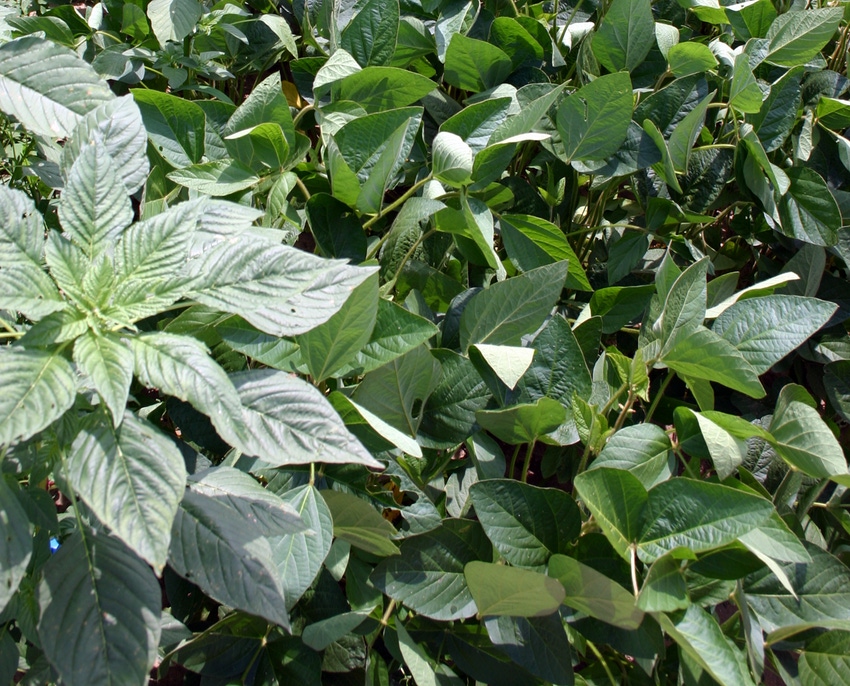June 29, 2011

We have had some recent scattered and often unpredicted rains and showers around Arkansas. Unfortunately, some of those were accompanied by high winds and blowing sand in some areas and hail in other areas.
I know growers in north Arkansas who lost crops and infrastructure to winds and sand and a grower in south Arkansas who had severe hail damage on large acreages of corn, cotton and soybeans. I do not know what we have done to Mother Nature, but she continues to be in a very foul mood.
I continue to receive a high number of calls about how to control pigweeds — pigweeds in rice, pigweeds in cotton, pigweeds in soybeans, pigweeds in corn and pigweeds on turn rows and fallow areas. I have been writing on this topic since 2005 — the weeds are talking, is anybody listening?
Yes, folks are listening, but many simply cannot come to grips with the fact that the days of easy weed control are over for the foreseeable future. If we cannot somehow get everyone from the basic manufacturers to the growers on the same diversity page, there is a huge opportunity for someone to start manufacturing better hoes and a lot of them.
We have had a heck of a run with all Roundup Ready crops (except rice). Roundup Ready has been a huge part of my career and I am not about to try to preach a funeral for it. I have a passion for trying to preserve the technology.
However, glyphosate no longer controls our big driver weeds. You cannot consistently control glyphosate-resistant weeds in a glyphosate-based herbicide program. My guess is that this year will finish driving home that point.
From the start, the message about how to solve the glyphosate-resistance problem has been vastly over-simplified. Just adding conventional herbicides to a glyphosate program is not a resistance management program. That program is certainly better than a glyphosate-only program.
Conventional herbicides, however, are too inconsistent for our conditions and the way we farm. I am getting old, but my memory on some things is still pretty good. I was in the pigweed fight before Roundup Ready, and I distinctly remember that we could not make the conventional herbicide systems consistently control Palmer pigweed. On a small-plot basis I could actually make them do some better than on a large-scale basis.
One reason that conventional herbicide systems will not work consistently is because of our dry weather patterns in the South. We have to use residual herbicides now. I recommend one or more in every field. However, you must go forward with a plan that assumes they are not going to work!
A timely application of Flexstar, a generic or even Ultra Blazer can work quite nicely on emerged pigweeds if they are very small. However, the window of application can be as narrow as one or two days when they are growing 2 inches a day.
Reality is, most growers are too large and too busy to get across the necessary acres in a window that narrow.
There are some good-looking Roundup Ready soybeans using conventional herbicides this year. Where timely rains occur on pre-emergence herbicides and where timely postemergence applications of conventional herbicides are made, the system will work quite nicely.
On the other hand, there are fields being plowed up and replanted due to pigweed control failures. In between the clean fields and fields plowed up there is everything in between.
I compare notes all the time with my university counterparts. We are all inundated with calls from folks wanting help in situations where what they want to do simply has a high probability of failure. Most of these callers are unwilling to change systems. Until growers become willing to include more diversity in their programs and then demand that industry support that change, we will continue to lose ground to the weeds.
About the Author(s)
You May Also Like




